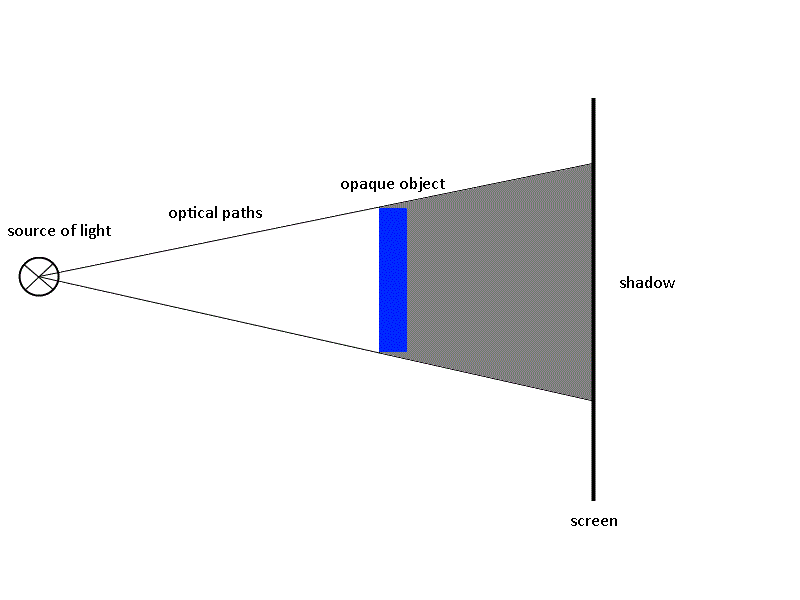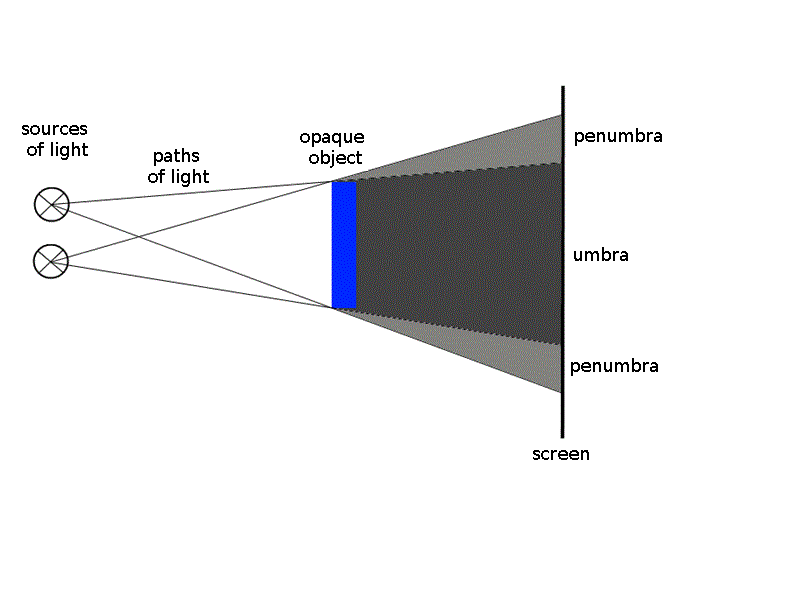Development of a shadow
Shadows are created where light is stopped from spreading by lightproof objects. Therefore, a shadow is always created on the side of the object which is away from the light.

Every source of light creates one shadow behind the lightproof object. It is not important if the source of light is real or virtual.
The closer the source of light is to the object, the bigger the shadow.

If two shadows overlap they create an umbra. This area is completely dark because no light can reach it. The lighter areas of the shadow are called penumbra. These areas are lighter because they are hit by only one source of light but not the other..
Geometrical optics allows us to predict how a shadow is created. It is useful to observe the scenery through birds-eye-view.
To construct a shadow, the two rays of light that just pass the object are drawn. All the rays between these two hit the object and can no longer spread. All the rays outside of these two pass the object. The shadow is created between these two rays on the side of the object which faces away from the light (see picture below).

If there is more than one source of light, the construction is made equally with all the sources to get a picture of the shadows. If the radiation paths overlap behind the object, your need to pay attention to umbra and penumbra.


If the radiation paths do not overlap, only penumbrae are created but no umbra.
